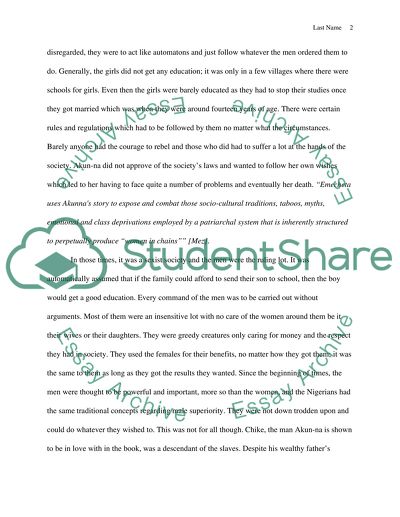Cite this document
(“The Bride Price by Buchi Emecheta Book Report/Review”, n.d.)
The Bride Price by Buchi Emecheta Book Report/Review. Retrieved from https://studentshare.org/sociology/1445542-research-paper-on-the-bride-price-by-buchi
The Bride Price by Buchi Emecheta Book Report/Review. Retrieved from https://studentshare.org/sociology/1445542-research-paper-on-the-bride-price-by-buchi
(The Bride Price by Buchi Emecheta Book Report/Review)
The Bride Price by Buchi Emecheta Book Report/Review. https://studentshare.org/sociology/1445542-research-paper-on-the-bride-price-by-buchi.
The Bride Price by Buchi Emecheta Book Report/Review. https://studentshare.org/sociology/1445542-research-paper-on-the-bride-price-by-buchi.
“The Bride Price by Buchi Emecheta Book Report/Review”, n.d. https://studentshare.org/sociology/1445542-research-paper-on-the-bride-price-by-buchi.


